 Petzlover
Petzlover Akita is originated from Japan but Jack Russell Terrier is originated from United Kingdom. Akita may grow 32 cm / 13 inches higher than Jack Russell Terrier. Akita may weigh 46 kg / 102 pounds more than Jack Russell Terrier. Both Akita and Jack Russell Terrier has almost same life span. Both Akita and Jack Russell Terrier has same litter size. Both Akita and Jack Russell Terrier requires Low Maintenance.
Akita is originated from Japan but Jack Russell Terrier is originated from United Kingdom. Akita may grow 32 cm / 13 inches higher than Jack Russell Terrier. Akita may weigh 46 kg / 102 pounds more than Jack Russell Terrier. Both Akita and Jack Russell Terrier has almost same life span. Both Akita and Jack Russell Terrier has same litter size. Both Akita and Jack Russell Terrier requires Low Maintenance.
 Akita is a very old breed. The first information originates back in the 1600s. Akita was a royalty guard and a hunting dog. They were popular because of their bravery. Akita even attacked bears. Helen Keller brought the first Akita to America. She admired the breed because of the famous Hachiko, a dog that was known for his loyalty. Today, Akita is a popular dog in the whole world. They are lovely family pets, and if train properly they will be adorable part of any family.
Akita is a very old breed. The first information originates back in the 1600s. Akita was a royalty guard and a hunting dog. They were popular because of their bravery. Akita even attacked bears. Helen Keller brought the first Akita to America. She admired the breed because of the famous Hachiko, a dog that was known for his loyalty. Today, Akita is a popular dog in the whole world. They are lovely family pets, and if train properly they will be adorable part of any family.
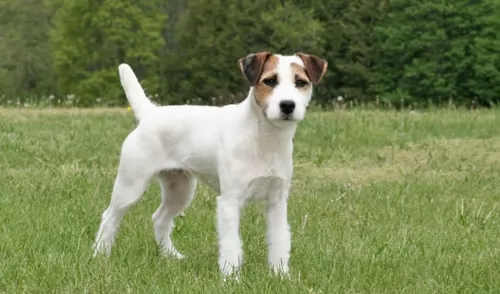 The popular Jack Russell Terrier was developed in Devonshire in the south of England in the late 1800's so as to hunt foxes.
The popular Jack Russell Terrier was developed in Devonshire in the south of England in the late 1800's so as to hunt foxes.
Often believed to be the Parson Russell Terrier, the Jack Russell Terrier was developed by Parson John Russell. This is where the dog gets his breed name from. Some people get the Jack Russell Terrier a little bit mixed up with the Parson Russell terrier, when it fact its actually a different breed, but sharing a common ancestry.
The Jack Russell Terrier is smaller than the Parson and bigger than the Russell Terrier. The breed became known in the U.S. by the 1930s and the Jack Russell Terrier Association of America wanted recognition by the American Kennel Club, which was granted in 2000.
 Akita’s average weight is 34-54kg, while their height is 58-66cm. Females are smaller than males.
Lifespan variates from dog to dog but an average lifespan of Akita is 11-15 years. However, if you take care of your dog with a proper diet and regular vet checks they can live longer than average.
Litter Size of Akita is 7-8 puppies, but again, litter size variates because of dog’s genetics.
Other Names for Akita are Akita-Inu and Japanese Akita.
Akita’s average weight is 34-54kg, while their height is 58-66cm. Females are smaller than males.
Lifespan variates from dog to dog but an average lifespan of Akita is 11-15 years. However, if you take care of your dog with a proper diet and regular vet checks they can live longer than average.
Litter Size of Akita is 7-8 puppies, but again, litter size variates because of dog’s genetics.
Other Names for Akita are Akita-Inu and Japanese Akita.
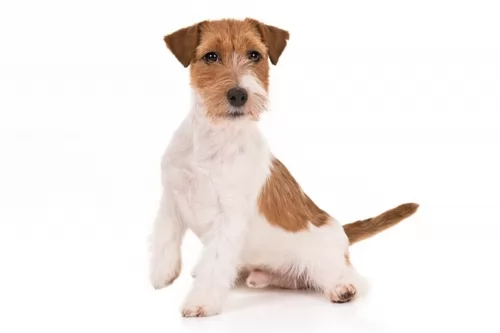 The Jack Russell Terrier is a small dog that weighs between 6 and 8kg and stands at between 25 – 38cm. The body length of the dog should be in proportion to the height.
The Jack Russell Terrier is a small dog that weighs between 6 and 8kg and stands at between 25 – 38cm. The body length of the dog should be in proportion to the height.
He is essentially a white dog with orange or fawn colored patches. The coat is mostly smooth and short, but the coat can also be longer and rough or it can be broken which is a combination of rough and smooth. Regardless of coat type, they are dense, double coats which will require brushing at least twice a week to remove loose hairs. He may also be tri-colored such as being white with black and tan patches.
He has alert, bright dark brown eyes and ears which are somewhat erect and which flop over at the tips. The tail has always been traditionally docked, giving him an attractive, compact look about him but unfortunately the tail is often left long on the dog these days.
Your Jack Russell Terrier is a lively, tenacious, bold, fearless, feisty, cheeky, confident, independent, intelligent and full of life dog. He is super energetic and exuberant, spirited and full of personality.
There are some dog owners who are exhausted by him and would prefer a more quieter dog breed as their companion. Nonetheless he has some excellent characteristics such as being a totally devoted and loving dog.
It is why it is a good idea to have him trained and socialized as it calms him down and makes him more obedient. He is very intelligent and training him will be easy.
 Akita is a very elegant breed. They are very strong and fast, so they had been excellent guards. They sometimes can be stubborn, but they are very loyal to the family. Akita has tendencies to be aggressive to other dogs. Because of their dominant character, they can be especially aggressive towards the same sex. They are the best for one-dog houses. With family, they are very loving and gentle. The best way to train Akita is by positive training with awards. The old-fashioned way like punishing is not recommendable. Constant and firm training is important, so if you are first time owner, it might be a big challenge. If you are first time owner, consider advising with a trainer who knows the breed.
Akita is a very elegant breed. They are very strong and fast, so they had been excellent guards. They sometimes can be stubborn, but they are very loyal to the family. Akita has tendencies to be aggressive to other dogs. Because of their dominant character, they can be especially aggressive towards the same sex. They are the best for one-dog houses. With family, they are very loving and gentle. The best way to train Akita is by positive training with awards. The old-fashioned way like punishing is not recommendable. Constant and firm training is important, so if you are first time owner, it might be a big challenge. If you are first time owner, consider advising with a trainer who knows the breed.
Akita loves to be around family and to be included in family activities. They do not need a lot of activity, but daily routines of one-hour walks or jogging would be ideal for Akita. Visiting parks for dogs is not a good idea because of aggressive attitude towards other animals. If Akita does not have activities they can get bored, and you do not want bored Akita. When bored they start barking, digging, chewing, and sometimes even aggressive. Overall, they are very loving and gentle dogs who love to be around family and enjoy activities. But, they also need proper care and attention which require time and patience.
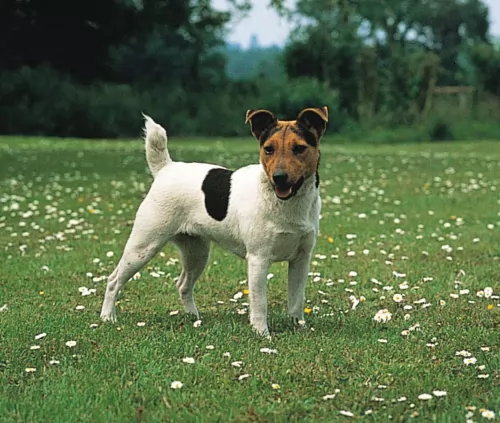 With loads of vibrant personality, the energetic Jack Russell Terrier has got so many wonderful characteristics to his name – devotion, intelligence, charming, lively, playful and he is an entertainer – you’ll always be laughing a him.
With loads of vibrant personality, the energetic Jack Russell Terrier has got so many wonderful characteristics to his name – devotion, intelligence, charming, lively, playful and he is an entertainer – you’ll always be laughing a him.
You do need to pay him attention – you can’t just plonk him in your backyard and forget about him. He wants your love and attention and ignoring him can lead to problem behavior such as obsessive barking.
Give your Jack Russell Terrier all the love and care he needs, and you’ll have an exceptional pet and friend.
 Akita is a very healthy breed in general. Nevertheless, almost as every breed, Akita can develop health issues. Hip dysplasia, hypothyroidism, Progressive retinal atrophy are some of the issues Akita might have. Although, if you give your puppy Akita necessary vitamins, with a healthy diet and regular vet checks, it will a very happy and healthy dog. It is also important to know the genetics of your dog, so carefully choosing a puppy is very important.
Akita is a very healthy breed in general. Nevertheless, almost as every breed, Akita can develop health issues. Hip dysplasia, hypothyroidism, Progressive retinal atrophy are some of the issues Akita might have. Although, if you give your puppy Akita necessary vitamins, with a healthy diet and regular vet checks, it will a very happy and healthy dog. It is also important to know the genetics of your dog, so carefully choosing a puppy is very important.
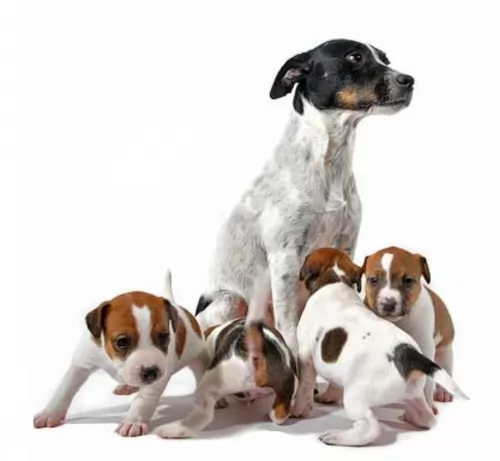 This particular dog breed has a reputation for being healthy and living to a good age such as 16 or 17 years of age. Of course he needs to be given proper care to reach such a good age.
This particular dog breed has a reputation for being healthy and living to a good age such as 16 or 17 years of age. Of course he needs to be given proper care to reach such a good age.
Some common dog disorders you might want to be aware of are -
Lens luxation is actually a common hereditary disorder in these dogs, but even so, with good care, your dog isn’t likely to battle with it. What happens is that the lens in the eye becomes displaced. There are two types, with Posterior luxation being the lesser severe one.Treatment is available.
Patellar luxation is an hereditary disorder affecting the knees of the dog. The kneecap slips off the groove where it sits and you may notice your dog running while holding his hind leg in the air. It can sometimes slip back in place and then you see your dog running in his usual way. It becomes more serious when it affects both legs.
 It is always important to adjust feeding to size, activity age and built. Dogs who are bigger and have more activity will need more food. For an average Akita 3-5 cups of dry high-quality food, divided into 2 meals will be enough. They also love to eat vegetables like carrots, broccoli, and fruits like apples, oranges, watermelon, etc.
It is always important to adjust feeding to size, activity age and built. Dogs who are bigger and have more activity will need more food. For an average Akita 3-5 cups of dry high-quality food, divided into 2 meals will be enough. They also love to eat vegetables like carrots, broccoli, and fruits like apples, oranges, watermelon, etc.
Akita puppy should have more meals per day plus additional calcium and vitamins. 3-5 meals per day would be an ideal for a puppy. It is a perfect way to develop your puppy into a healthy adult dog.
Grooming Akita is not the worst, but it will require some work. They have a double coat, but they are shedding a lot. Occasional vacuuming will be a new habit that every Akita owner needs. They shed 2-3 times per year, so it is not very bad. When it not shedding, everyday brushing would be a perfect way to groom your Akita.
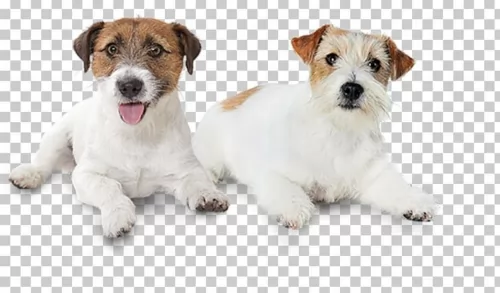 The Jack Russell Terrier isn’t just a small dog that can be left to his own devices. He will need proper training and socialization early in life to make him obedient and better to get on with.
The Jack Russell Terrier isn’t just a small dog that can be left to his own devices. He will need proper training and socialization early in life to make him obedient and better to get on with.
He may be a small dog, but he certainly won’t do in the city where he is cooped up in a place with a handkerchief of a garden. He needs lots of space to run and play. He wants his human family to join in with walks, hikes, ball games and swimming.
You can buy excellent commercially manufactured dog food which caters for energetic small dog breeds like the Jack Russell Terrier.
Once you have selected the best one for your pet, with dry kibble being better in terms of dental health - you can also add in some brown rice, vegetables and cooked chicken. This is highly beneficial to all dog breeds. A little bit of raw meat can sometimes be added in too.
The bottom line is to to prevent your pet from eating foods high in preservatives, additives and fillers. Never leave your pet without a constant supply of fresh, cool water.